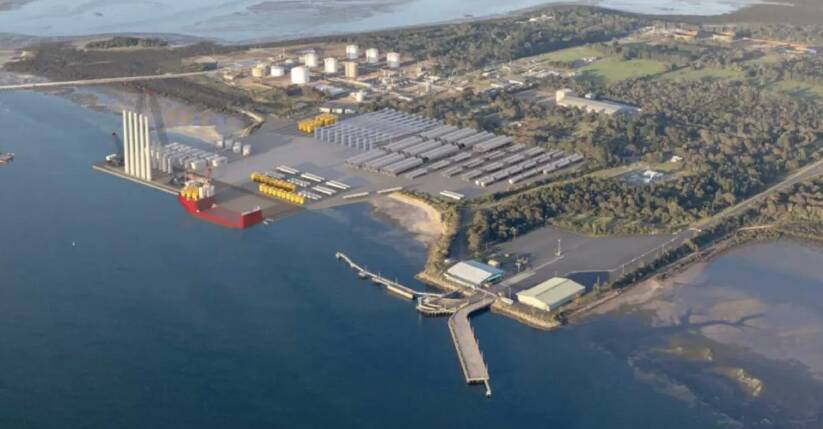
Leading offshore wind energy advocate, executive and investor Andy Evans says the federal government's refusal of a wind farm terminal in Victoria on environmental grounds demonstrates why Newcastle is the best candidate to lead the emerging industry.
Environment Minister Tanya Plibersek refused Commonwealth approvals for the Victorian Renewable Energy Terminal in December, saying the proposal was "clearly unacceptable" under Australia's obligations as a signatory to the Ramsar Convention on Wetlands of International Importance.
The terminal at the port of Hastings was intended to be the land-based hub for wind farm construction off the Gippsland coast, the first offshore renewable energy zone designated by the Albanese government in 2022.
The decision has left the Victorian government scrambling to keep the Gippsland project and its renewable energy targets on track.
Mr Evans, who has interests in both the Hunter and Gippsland offshore wind farms, said the environmental refusal was a "blip" and he expected the Victorian government to modify its referral application under the Environment Protection and Biodiversity Conservation Act.
"It's certainly a setback but not something that is unanticipated in big infrastructure projects," he said.
"Yes, it has an impact, but it's certainly not deterring investors."
Mr Evans was the founding chief executive of the Star of the South wind project in Gippsland and remains an investor in the company.
He is also chief executive of Oceanex Energy, a company which has partnered with Norwegian energy giant Equinor on floating wind farm proposals for the Hunter coast and elsewhere in Australia.
The federal government designated the Hunter offshore renewable energy zone in July last year.
Mr Evans said the Hunter zone benefited from an established industrial port without the same environmental challenges as Hastings.
"You've got a bloody fantastic port there already. You don't need to go off and try to restructure ports," he said.
"That was one of the key reasons we looked particularly at the Hunter, because of the port of Newcastle.
"It's a massive advantage. You've got a lot of the hard-stand bases there already compacted for industrial use."
The Hunter offshore wind zone has attracted opposition from parts of the Port Stephens community concerned about environmental, tourism and fishing impacts.
Mr Evans said the "false negatives" of the project obscured its "massive positives".
"Newcastle and the Hunter is just a standout region compared to everywhere else in terms of the port and capability as well.
"Investors and developers are still really buoyed by everything. We just think it's a great opportunity for the regions and Australia."
Oceanex was one of eight companies to submit feasibility licence applications for the 1800-square kilometre, five-gigawatt Hunter offshore zone late last year.
Mr Evans hoped the government would announce the successful applicants in June or July.







